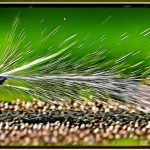Geese are large waterfowl that are known for their distinctive honking sound and V-shaped flying formation. They are highly adaptable birds that can be found in a variety of habitats, including lakes, ponds, and grassy areas. Geese are social animals that live in flocks and are known for their strong family bonds.
While geese can be fascinating to observe in their natural habitat, they can also become a nuisance in certain areas. They are notorious for leaving droppings on sidewalks, lawns, and other public spaces, which can create unsightly messes and pose health risks. Additionally, geese can be aggressive during their nesting season and may attack humans or other animals that come too close to their nests.
Key Takeaways
- Geese are social birds that can become aggressive when they feel threatened or cornered.
- Natural deterrents like landscaping, decoys, and sound machines can help keep geese away from your property.
- Physical barriers like fences, netting, and hedges can be effective in preventing geese from accessing certain areas.
- Scare tactics like motion-activated sprinklers, lasers, and trained dogs can startle geese and discourage them from returning.
- Habitat modification, such as removing food sources and altering water features, can make your property less attractive to geese.
Natural Deterrents for Geese
One way to deter geese from an area is by using natural deterrents. Planting certain types of vegetation can make an area less attractive to geese. They prefer open spaces with short grass, so planting taller grasses or shrubs can discourage them from settling in an area. Additionally, geese are wary of predators, so using decoys of natural predators such as coyotes or foxes can deter them from an area. Finally, installing reflective objects such as mirrors or shiny tape can create a visual deterrent for geese.
Creating Physical Barriers to Keep Geese Away
Another effective method for keeping geese away is by creating physical barriers. Fencing options such as chain-link or electric fences can prevent geese from accessing certain areas. Netting solutions can also be effective in keeping geese away from specific locations, such as swimming pools or gardens. Floating barriers, such as buoys or floating ropes, can be used to create a physical barrier on bodies of water to prevent geese from landing.
Using Scare Tactics to Repel Geese
Scare tactics can be an effective way to repel geese from an area. Noise-making devices, such as air horns or propane cannons, can startle geese and make them uncomfortable. Motion-activated sprinklers can also be effective in scaring geese away, as they are startled by sudden bursts of water. Visual deterrents, such as scarecrows or flags, can also be used to make an area less appealing to geese.
Understanding the Importance of Habitat Modification
Modifying the habitat to make it less attractive to geese is another effective strategy for keeping them away. Removing food sources, such as spilled birdseed or garbage, can discourage geese from settling in an area. Eliminating standing water, such as puddles or small ponds, can also make an area less appealing to geese. Finally, reducing nesting areas by removing tall grasses or shrubs can discourage geese from nesting in a specific location.
Electronic Devices to Keep Geese at Bay

There are several electronic devices available that can help keep geese away. Sonic repellers emit loud noises that are unpleasant to geese and can deter them from an area. Ultrasonic devices emit high-frequency sounds that are inaudible to humans but are irritating to geese. Laser technology can also be used to create a visual deterrent for geese.
Chemical Repellents for Geese Control
Chemical repellents can be used as a last resort for geese control. These repellents are typically applied to grassy areas or other surfaces where geese are likely to feed or rest. They contain substances that are unpleasant to geese, such as methyl anthranilate, which is derived from grapes and is safe for humans and the environment. However, it is important to use caution when using chemical repellents and follow all safety precautions.
The Benefits of Professional Geese Control Services
In some cases, it may be necessary to hire a professional geese control service to effectively manage a geese infestation. Professional services have the knowledge and experience to implement the most effective strategies for geese control. They can also provide ongoing maintenance and monitoring to ensure that geese do not return to the area. Additionally, professional services can help educate employees and visitors about the importance of maintaining a goose-free environment.
Best Practices for Preventing Geese Infestations
Preventing geese infestations requires regular maintenance and upkeep. This includes regularly removing food sources, such as spilled birdseed or garbage, from an area. It also involves eliminating standing water and reducing nesting areas by keeping grasses and shrubs trimmed. Educating employees and visitors about the importance of not feeding geese or approaching their nests is also crucial. Finally, consistent monitoring and action are necessary to address any potential geese issues before they become a larger problem.
Maintaining a Goose-Free Environment
In conclusion, geese can become a nuisance in certain areas due to their droppings, aggressive behavior, and potential health risks. However, there are several strategies that can be used to deter geese from settling in an area. These include using natural deterrents, creating physical barriers, using scare tactics, modifying the habitat, using electronic devices, and considering chemical repellents as a last resort. In some cases, it may be necessary to hire a professional geese control service to effectively manage a geese infestation and prevent future infestations. By implementing these strategies and practicing regular maintenance and monitoring, it is possible to maintain a goose-free environment.
If you’re looking for effective ways to keep geese away, you might also be interested in learning about how to protect your chicken coop from unwanted visitors. Poultry Wizard has a helpful article on chicken coop security in Muskegon, which provides valuable tips and techniques to keep your chickens safe from predators. Check it out here for more information.
FAQs
What are some effective ways to keep geese away?
Some effective ways to keep geese away include using decoys, installing fencing or netting, using noise deterrents, and removing food sources.
Why do geese need to be kept away?
Geese can cause damage to property, create unsanitary conditions, and pose a safety risk to humans. They can also be aggressive towards other animals and people.
What are some natural ways to keep geese away?
Some natural ways to keep geese away include planting certain types of vegetation, using reflective surfaces, and introducing natural predators such as dogs or hawks.
Is it legal to harm or kill geese?
In most cases, it is illegal to harm or kill geese without a permit. It is important to check with local laws and regulations before taking any action.
How can I prevent geese from nesting on my property?
To prevent geese from nesting on your property, it is important to remove any potential nesting sites such as tall grass or brush. You can also use visual deterrents such as scarecrows or flags to discourage nesting.
Meet Walter, the feathered-friend fanatic of Florida! Nestled in the sunshine state, Walter struts through life with his feathered companions, clucking his way to happiness. With a coop that’s fancier than a five-star hotel, he’s the Don Juan of the chicken world. When he’s not teaching his hens to do the cha-cha, you’ll find him in a heated debate with his prized rooster, Sir Clucks-a-Lot. Walter’s poultry passion is no yolk; he’s the sunny-side-up guy you never knew you needed in your flock of friends!







